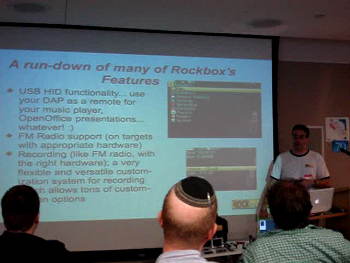The concept of flame wars and public pie throwing is not new in the open source world, and the open nature of the projects make us – the audience – get to see everything. To read every upset word and get to point back to the mails in retrospect.
I don’t think people in the open source community is any particularly more trigger-happy to start the flame wars than people are outside of the openness, but open it is and then we can see it.
I’ve always disliked the harsh attitude and language that seems to have become popular in some circles, and I believe Linus Torvalds himself is part of that movement as he’s often rude, bad-mouthed and very aggressive in his (leadership) style. I think that easily grows into a hostile and unfriendly atmosphere where little room is left for fun, for jest and for helping out among friends.
So even if that is not the reason for the recent developments, here’s two episodes from August 2009:
A short while ago we got to see well-known kernel hacker Alan Cox step down as tty maintainer after an emotional argument on the lkml. The argument there was basically Linus telling Alan he should’ve admitted his error and acted on it earlier than he did.
Nearby, on the mailing list linux-arm-kernel a long-going argument about the management of the actual mailing list itself again sparkled up a fire. The argument in this case have been a long going discussion whether the mailing list Russell King (the main ARM Linux maintainer) runs should be open to allow non-subscribers to post without them needing moderation or not. It ended today with Russell shutting down his lists.
Right now, it seems the linux-arm-kernel list is being transferred over to infradead.org by David Woodhouse to continue its life there, but I don’t think we’ve seen the end of this yet so things may settle differently. There’s also this patch pending which suggests using the linux-arm list on vger.kernel.org.
(Readers should note that I myself don’t take side in any of these arguments.)



 ports in regards to the mainline Linux tree? They’re both using ARM cores (of course).
ports in regards to the mainline Linux tree? They’re both using ARM cores (of course).
 There’s already a bazillion instructions on how to install and run Linux on your EEE PCs out there, but they all seemed to miss one (for me) crucial little detail:
There’s already a bazillion instructions on how to install and run Linux on your EEE PCs out there, but they all seemed to miss one (for me) crucial little detail: